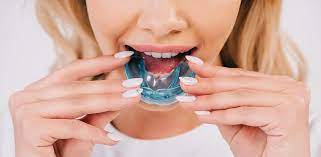When it comes to safeguarding your teeth, wearing a mouthguard is one of the most important steps you can take, especially during high-impact sports or activities. Mouthguards provide protection against serious dental injuries, helping to prevent chipped, cracked, or knocked-out teeth. This article explores why Mouthguards are essential and how they contribute to your overall dental health.
Preventing Tooth Damage:
One of the main reasons to wear a mouthguard is to protect your teeth from the risk of damage. Whether you are playing contact sports or participating in activities that involve potential falls, the risk of facial injury is high. A mouthguard acts as a barrier to cushion impacts to the teeth, reducing the chances of severe damage.
- Prevents Tooth Fractures: A mouthguard absorbs the force of a blow, protecting your teeth from being fractured or chipped.
- Avoids Tooth Loss: In contact sports, a mouthguard can significantly reduce the chances of losing a tooth due to impact.
- Reduces Dental Sensitivity: By protecting against trauma, mouthguards help avoid long-term issues like tooth sensitivity caused by damage to enamel or pulp.
Protecting Jaw and Soft Tissues:
A properly fitted mouthguard doesn’t only protect your teeth; it also provides crucial protection to the jaw and surrounding soft tissues like your gums, lips, and cheeks. This additional protection helps prevent injury during sports or activities that might lead to abrasions or fractures in these areas.
- Prevents Jaw Fractures: A mouthguard can reduce the risk of fractures to the jaw by cushioning impacts to the face.
- Soft Tissue Protection: It helps prevent cuts and bruises in the mouth, such as from the upper teeth biting into the inside of the lips or cheeks.
- Reduces Jaw Dislocation: A mouthguard stabilizes the jaw, helping to prevent dislocation caused by sudden, forceful blows to the face.
Decreasing the Risk of Concussions:
In addition to protecting your teeth and soft tissues, mouthguards may also help in reducing the risk of concussions. Studies have shown that the absorption of impact to the jaw can prevent or minimize the force of a hit traveling to the head, thus lowering the risk of concussions.
- Absorbs Impact: A mouthguard reduces the shock transferred through the teeth to the skull, which can help lower the chances of a concussion.
- Prevents Head Injuries: By stabilizing the jaw, a mouthguard can minimize head movement that can lead to head or neck injuries.
- Protects the Brain: While mouthguards cannot fully prevent concussions, they play a role in reducing the intensity of the impact and protecting the brain from serious injury.
Enhancing Comfort and Performance:
Wearing a mouthguard can also contribute to greater comfort and performance, especially during intense physical activity. Some athletes find that mouthguards help reduce the stress placed on their mouth, jaw, and teeth during sports, improving focus and confidence.
- Prevents Teeth Grinding: Mouthguards can help prevent clenching or grinding of the teeth, which is common during high-stress situations like competitive sports.
- Improves Breathing: Some specialized mouthguards are designed to improve air circulation, allowing for better breathing during exertion.
- Enhances Focus: Knowing that your teeth and mouth are protected, athletes can focus more on their performance without worrying about injury.
Different Types of Mouthguards:
When choosing a mouthguard, it’s important to understand the different types available. Selecting the right one depends on comfort, protection, and your specific needs.
- Custom Mouthguards: These are custom-made by dental professionals for the best fit and maximum comfort. Custom mouthguards provide superior protection and are typically used by athletes engaged in high-contact sports.
- Boil-and-Bite Mouthguards: These mouthguards are softened in hot water and then molded to fit your teeth. They offer a better fit than stock mouthguards and are more affordable than custom-made options.
- Stock Mouthguards: These are ready-to-use mouthguards that come in a pre-formed shape. While they offer basic protection, they may not fit as comfortably as custom or boil-and-bite options.
Promoting Long-Term Oral Health:
Wearing a Mouthguards regularly helps protect your oral health in the long run. By preventing injuries, you’re reducing the chances of costly dental repairs and other complications that could affect your teeth and gums.
- Prevent Expensive Dental Procedures: A mouthguard can prevent damage that may require expensive treatments such as root canals, crowns, or tooth extractions.
- Reduces the Need for Orthodontics: By preventing tooth damage, a mouthguard can help maintain the alignment of your teeth, reducing the need for orthodontic work later in life.
- Protects Gums from Injury: A mouthguard helps prevent gum lacerations, which could lead to infections or gum disease if untreated.
Conclusion:
Mouthguards are not just a useful accessory for athletes—they are a necessary tool to protect your teeth, jaw, and soft tissues from injury. By reducing the risk of tooth fractures, jaw dislocations, concussions, and soft tissue damage, mouthguards play a critical role in promoting overall dental health. Whether you’re playing sports or engaging in other high-risk activities, investing in a high-quality mouthguard is an essential step in ensuring your oral safety. Prioritize wearing a mouthguard and protect your teeth for the long term.





Comments